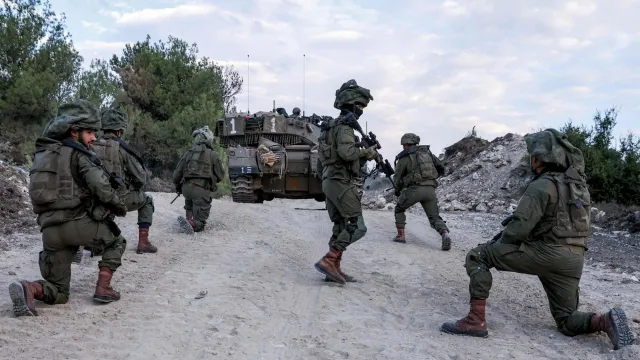Israel conducted airstrikes in southern Lebanon on Thursday, claiming to have disrupted an Iranian-led assassination attempt. This followed recent explosions involving Hezbollah radios and booby-trapped pagers, escalating tensions between the two sides. The targeted strikes on Hezbollah’s communication systems have caused chaos in Lebanon, prompting many residents to abandon their mobile devices in fear.
“This isn’t a minor issue; it’s war. Who can feel safe with their phone now? After hearing about what happened yesterday, I left my phone on my motorcycle and just walked away,” said Mustafa Sibal, speaking from a street near central Beirut. Meanwhile, the distant roar of what Lebanese state media identified as Israeli jets breaking the sound barrier echoed through the city—a sound that has become increasingly frequent in recent months.
Israel announced that its warplanes targeted villages in southern Lebanon overnight, with airstrikes near the border reportedly resuming just after midday on Thursday, according to a security source and Hezbollah’s al-Manar TV. On Wednesday, hand-held radios used by Hezbollah exploded across southern Lebanon, resulting in 20 deaths—the deadliest day in the region since cross-border fighting began between the militants and Israel alongside last year’s Gaza conflict.
The day before, hundreds of pagers—utilized by Hezbollah to bypass mobile phone surveillance—detonated simultaneously, resulting in 12 fatalities, including two children, and injuring nearly 3,000 individuals. In response, Lebanese Prime Minister Najib Mikati urged the United Nations Security Council to take a strong stance against Israel’s “aggression” and “technological war” against Lebanon. While Israel has not directly addressed the incidents involving the booby-trapped walkie-talkies and pagers, several security sources have indicated that the attacks were executed by its intelligence agency, Mossad.
Israel claims its conflict with Hezbollah, like its ongoing war in Gaza against Hamas, is part of a broader regional struggle against Iran, which supports both groups along with armed factions in Syria, Yemen, and Iraq. On Thursday, Israeli security forces revealed that an Israeli businessman was arrested last month for attending meetings in Iran to discuss plans to assassinate Prime Minister Benjamin Netanyahu, the defense minister, or the head of the Shin Bet intelligence agency. Additionally, last week, Shin Bet uncovered a plot by Hezbollah to assassinate former Defense Minister Moshe Ya’alon. Israel has faced accusations of conducting assassinations, including a recent blast in Tehran that killed a Hamas leader and another incident in Beirut that claimed the life of a senior Hezbollah commander. Despite recent escalations, a U.N. peacekeeping spokesperson noted that the situation along the Israel-Lebanon border has remained relatively stable in terms of fire exchanges, although tensions are high. Israeli military operations have targeted Hezbollah positions in various southern Lebanese towns, and there have been reports of injuries among Israeli civilians from anti-tank fire. Defence Minister Yoav Gallant indicated that the conflict is entering a new phase, with more military resources being redirected to the northern border. While there have been missile exchanges since the Hamas attack on October 7, neither side has escalated the situation into full-scale war, but tens of thousands have evacuated from the border region, increasing pressure on the Israeli government to ensure their safe return.


